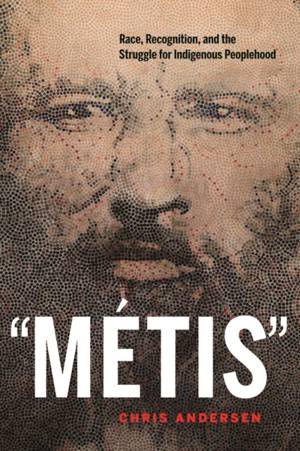
- Afhalen na 1 uur in een winkel met voorraad
- Gratis thuislevering in België vanaf € 30
- Ruim aanbod met 7 miljoen producten
- Afhalen na 1 uur in een winkel met voorraad
- Gratis thuislevering in België vanaf € 30
- Ruim aanbod met 7 miljoen producten
Zoeken
Métis
Race, Recognition, and the Struggle for Indigenous Peoplehood
Chris Andersen
Paperback | Engels
€ 43,45
+ 86 punten
Omschrijving
Ask any Canadian what "Métis" means, and they will likely say "mixed race." Canadians consider Métis mixed in ways that other Indigenous people are not, and the census and courts have premised their recognition of Métis status on this race-based understanding. Andersen argues that Canada got it wrong. From its roots deep in the colonial past, the idea of Métis as mixed has slowly pervaded the Canadian consciousness until it settled in the realm of common sense. In the process, "Métis" has become a racial category rather than the identity of an Indigenous people with a shared sense of history and culture.
Specificaties
Betrokkenen
- Auteur(s):
- Uitgeverij:
Inhoud
- Aantal bladzijden:
- 284
- Taal:
- Engels
Eigenschappen
- Productcode (EAN):
- 9780774827225
- Verschijningsdatum:
- 15/01/2015
- Uitvoering:
- Paperback
- Formaat:
- Trade paperback (VS)
- Afmetingen:
- 152 mm x 226 mm
- Gewicht:
- 430 g

Alleen bij Standaard Boekhandel
+ 86 punten op je klantenkaart van Standaard Boekhandel
Beoordelingen
We publiceren alleen reviews die voldoen aan de voorwaarden voor reviews. Bekijk onze voorwaarden voor reviews.











